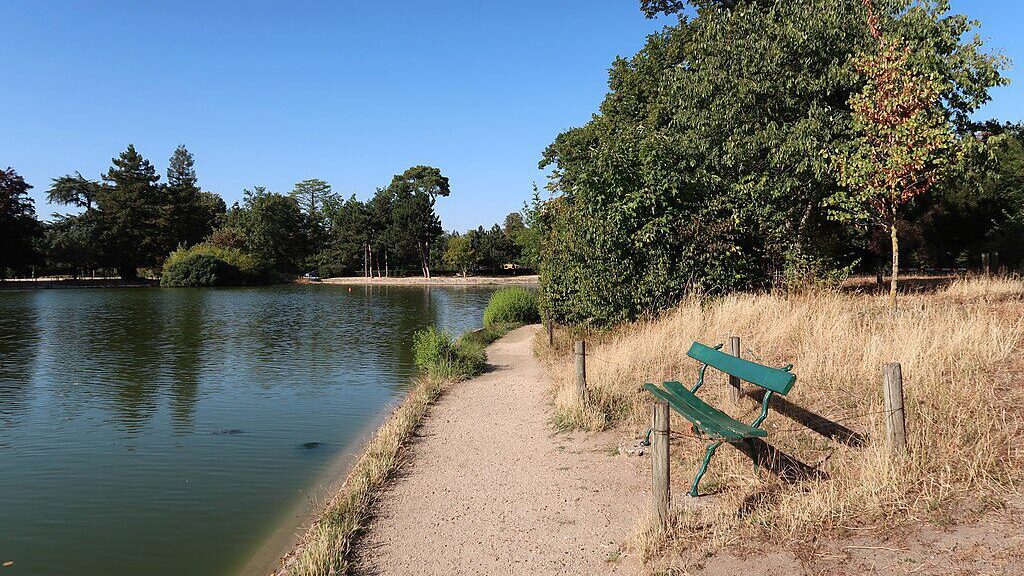
Photo: Celette, CC BY-SA 4.0, via Wikimedia Commons
At a time when the new French government is trying to find its way on security and immigration issues, a new tragedy has shaken French public opinion: the murder of Philippine, a 19-year-old Catholic student who was savagely killed and buried in the Bois de Boulogne, just outside Paris. The suspect is a Moroccan illegal immigrant with an OQTF (obligation to leave French territory), who had already been convicted of rape.
The violent crime, which occurred late on Friday, September 20th, is accompanied by a sense of déjà vu.
The victim, a 19-year-old student at Paris-Dauphine University in the 16th arrondissement of Paris, was last seen alive by her fellow students early last Friday afternoon as she was about to catch the suburban train to join her parents. She never arrived home.
Her close-knit and vigilant family raised the alarm on Friday evening and mobilised to search for her. Her body, partially buried, was finally found the next day during a search in the Bois de Boulogne, one of Paris’s largest parks on the western edge of the capital. The Bois de Boulogne is located in a posh residential area but is also notorious for prostitution and trafficking.
The emotions surrounding the young woman’s death are very strong. A Catholic who was very involved in her parish, a scout and child of a large family, she was universally known for her kindness and generosity towards others, as well as for her brilliant results at university.
The body showed numerous cuts and wounds. The investigation must now determine the exact cause and circumstances of Philippine’s death. Her assailant stole his victim’s credit card, which was then used near Montreuil, on the other side of Paris. He was eventually identified and caught by police on the run in Geneva, Switzerland.
The disclosure of his profile by the press aroused anger, emblematic of the failings of the justice system and of French immigration policy. The man, a certain Taha O., is 22 years old and originally from Morocco. He has been in France illegally for five years. He has already been convicted of raping a 23-year-old woman in 2019.
This would have required him to serve a 7-year prison sentence until 2026, but he was released after 5 years. He did not comply with any of the residence and control obligations to which he was subject. Since June 18th, 2024, he had been subject to an OQTF, or obligation to leave French territory, which had not been enforced.
The day before his crime, he was added to the national file of searched people.
His criminal resume has a number of points in common with those of other criminals who have recently hit the headlines in France. The murderer of 12-year-old Lola, who was brutally killed and dismembered in October 2022, was also an Algerian national who had been placed under an OQTF, which had not been enforced. The IFRAP think-tank recently pointed out the extraordinarily high rate of unexecuted OQTFs, and the considerable number of criminal cases involving profiles with OQTFs—a real judicial and political scandal.
As soon as the details of Taha O.’s case became known, the Right stepped up its attacks on the government and its disastrous judicial and migration policy.
“If the law had been applied correctly, the murderer would have been in prison or deported, and Philippine would still be alive,” said Laurent Jacobelli, spokesman for the Rassemblement National (RN).
The new justice minister, the socialist Didier Migaud—the only left-wing figure to have joined Michel Barnier’s team—clumsily defended himself by explaining that “there is no such thing as lax justice,” prompting outraged reactions from the public. At the same time, Lucie Castets, a disappointed candidate for the post of prime minister for the left-wing coalition, explained on television that she was in favour of regularising “all illegal immigrants.”
A rally in tribute to Philippine is being organised on Sunday, September 29th by the Collectif Némésis, a group of young right-wing women defending the right of French women to security.
